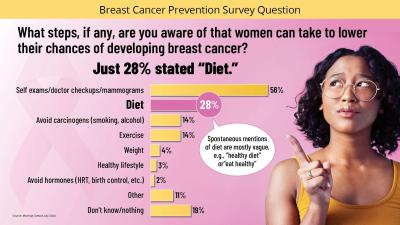Racial Differences in Genomic Regulatory Networks Driving Breast Cancer Survival

Study in a Sentence: By analyzing protein levels and network-level gene expression in tumors from a racially diverse breast cancer cohort, researchers at Columbia University and the National Institutes of Health uncovered gene regulators and networks that predict breast cancer survival in a race-specific manner.
Healthy for Humans: Breast cancer affects more than 250,000 Americans every year, and the mortality gap between African American and European American women continues to grow, with African American women experiencing aggressive forms more frequently. By identifying population-specific predictive breast cancer biomarkers, this study provides insight into mechanisms that drive racial disparities in breast cancer survival and may enable more accurate precision medicine.
Redefining Research: There are genetic predictors of aggressive breast cancer specific to African ancestry, but racial differences in access to health care and quality of care contribute to health disparities too. The biological mechanisms, both intrinsic and extrinsic, that drive breast cancer disparities are not well understood. Researchers elucidated these mechanisms by identifying differences in protein biomarkers of luminal mammary gland differentiation, a crucial process in breast tumor formation, as well as downstream networks of genes regulated by these biomarkers.








